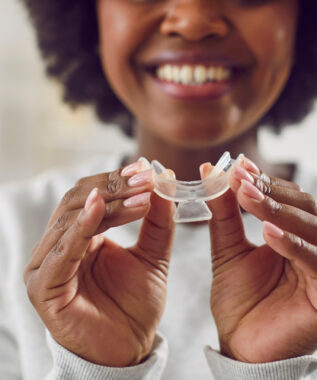 Just as attending a doctor visit or a visit with a specialist can be anxiety-inducing, the idea of going to the dentist for a checkup can be troubling for a number of people. What’s more, that fear and worry can become so strong that it completely inhibits an individual from attending in the first place. When this happens, however, your oral health needs take a backseat, potentially causing more problems down the line than one would expect. In today’s blog, your Leawood, KS dentist will discuss ways that our office can help ease your dental anxiety with the help of dental sedation.
Just as attending a doctor visit or a visit with a specialist can be anxiety-inducing, the idea of going to the dentist for a checkup can be troubling for a number of people. What’s more, that fear and worry can become so strong that it completely inhibits an individual from attending in the first place. When this happens, however, your oral health needs take a backseat, potentially causing more problems down the line than one would expect. In today’s blog, your Leawood, KS dentist will discuss ways that our office can help ease your dental anxiety with the help of dental sedation.
Did You Know Dentures Can Be Implant-Retained?
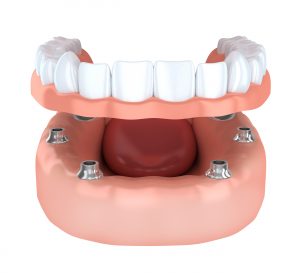 Adult tooth loss can be a difficult process for many, especially if you are unaware of your dental options moving forward. Indeed, circumstances such as internal root infections can progress at a rapid rate without proper care, resulting in the loss of one or even multiple teeth. In today’s blog, your Leawood, KS dentist would like to take a look at prosthetic dental options you may have to address complete structural loss, and how implant-retained dentures could be the right option for you.
Adult tooth loss can be a difficult process for many, especially if you are unaware of your dental options moving forward. Indeed, circumstances such as internal root infections can progress at a rapid rate without proper care, resulting in the loss of one or even multiple teeth. In today’s blog, your Leawood, KS dentist would like to take a look at prosthetic dental options you may have to address complete structural loss, and how implant-retained dentures could be the right option for you.
Is Your Cavity Causing Sharp Pains?
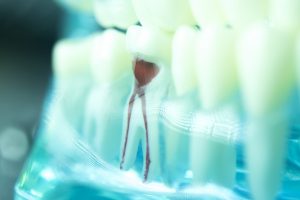 It’s no surprise that when it comes to your oral health, infection and decay can certainly complicate the situation. Considering its common yet complex nature, it can be treated effectively with the level of success being higher the sooner treatment is sought. If allowed to progress, however, it can cause significant damage that may require extensive treatment to handle. In today’s blog, your Leawood, KS dentist takes a look at times when decay spreads internally and how our team can help.
It’s no surprise that when it comes to your oral health, infection and decay can certainly complicate the situation. Considering its common yet complex nature, it can be treated effectively with the level of success being higher the sooner treatment is sought. If allowed to progress, however, it can cause significant damage that may require extensive treatment to handle. In today’s blog, your Leawood, KS dentist takes a look at times when decay spreads internally and how our team can help.
It’s Time To Address That Cavity
 Dental decay is a common concern that a number of people must deal with. In fact, it is one of the biggest threats to your oral health. Indeed, this phenomenon affects millions of people every year, and it can progress in a variety of stages, wreaking havoc on your otherwise healthy grin. In today’s blog, your Leawood, KS dentist will talk about the steps you can take to nip the problem in the bud early on through the help of a composite dental filling.
Dental decay is a common concern that a number of people must deal with. In fact, it is one of the biggest threats to your oral health. Indeed, this phenomenon affects millions of people every year, and it can progress in a variety of stages, wreaking havoc on your otherwise healthy grin. In today’s blog, your Leawood, KS dentist will talk about the steps you can take to nip the problem in the bud early on through the help of a composite dental filling.
Understanding The Progression of Decay
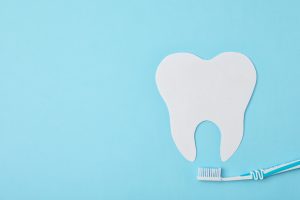 Advanced technology nowadays makes a number of procedures possible, meaning that oral health concerns can often be treaty at virtually any step. While this is true, it is important to note that having to reach a point where prosthetic dentistry is necessary can mean that your oral health is in danger. While prosthetics are able to restore most of your overall function, bear in mind that nothing is as strong or preferred as your natural teeth. In today’s blog, your Leawood, KS dentist would like to take a look at one of the most common threats to your health – decay – and how it progresses.
Advanced technology nowadays makes a number of procedures possible, meaning that oral health concerns can often be treaty at virtually any step. While this is true, it is important to note that having to reach a point where prosthetic dentistry is necessary can mean that your oral health is in danger. While prosthetics are able to restore most of your overall function, bear in mind that nothing is as strong or preferred as your natural teeth. In today’s blog, your Leawood, KS dentist would like to take a look at one of the most common threats to your health – decay – and how it progresses.
Bridging The Gap To Complete Your Smile
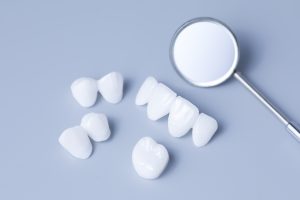 The last thing you might think would happen to you is losing a tooth as an adult, let alone losing multiple. What you may not be aware of, however, is that once you lose one, your chances of even more coming out increase drastically. Indeed, excellent preventive care is typically the best option to avoid these concerns, but once decay begins to significantly take effect, your only viable option may be to resort to restorative dentistry. In today’s blog, your Leawood, KS dentist will discuss how prosthetic dentistry can bridge the gap within your grin and how our office can help.
The last thing you might think would happen to you is losing a tooth as an adult, let alone losing multiple. What you may not be aware of, however, is that once you lose one, your chances of even more coming out increase drastically. Indeed, excellent preventive care is typically the best option to avoid these concerns, but once decay begins to significantly take effect, your only viable option may be to resort to restorative dentistry. In today’s blog, your Leawood, KS dentist will discuss how prosthetic dentistry can bridge the gap within your grin and how our office can help.
Do You Have A Proper Preventive Routine?
 From a young age, we often have memories of our parents consistently telling us to brush our teeth. At the time, it may feel unnecessary to do so often, and we probably attempted to get away with not doing so at one point or another. Now as adults, brushing is just another step in the morning routine before you start your day, but have you ever stopped and thought maybe there is more you can do to ensure a healthy grin? In today’s blog, your Leawood, KS dentist would like to discuss your preventive dental regimen and ensure the necessary steps are taken to provide for a healthy smile.
From a young age, we often have memories of our parents consistently telling us to brush our teeth. At the time, it may feel unnecessary to do so often, and we probably attempted to get away with not doing so at one point or another. Now as adults, brushing is just another step in the morning routine before you start your day, but have you ever stopped and thought maybe there is more you can do to ensure a healthy grin? In today’s blog, your Leawood, KS dentist would like to discuss your preventive dental regimen and ensure the necessary steps are taken to provide for a healthy smile.
Perfecting Your Smile With Veneers
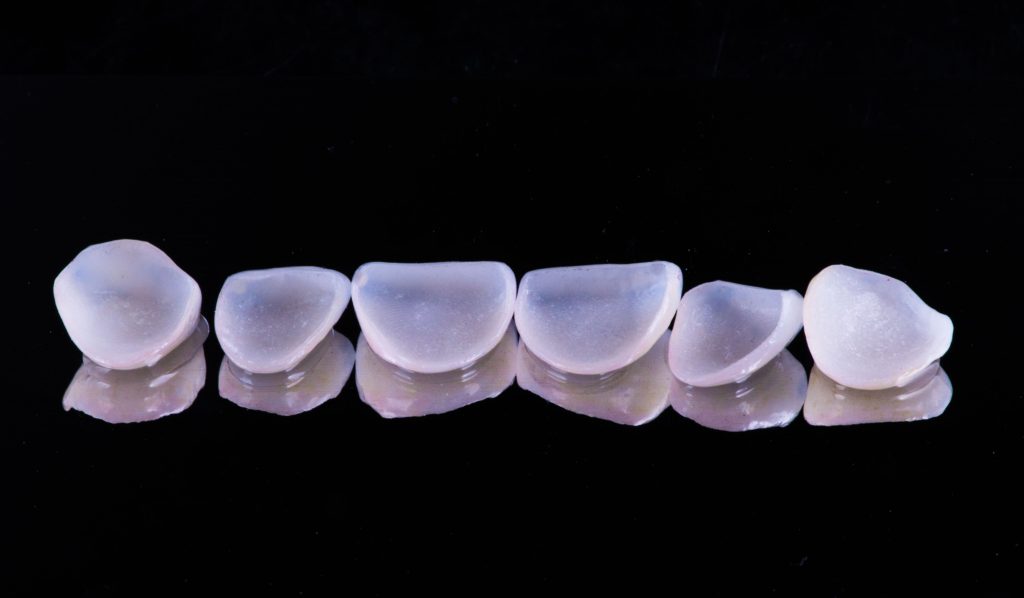 It is often a goal of many to maintain a healthy grin for life, both functionally and cosmetically. While a number of procedures have been streamlined to make achieving this goal more optimal and possible, many adults fail to take necessary preventive measures in the first place, meaning restorative and cosmetic dentistry may be a necessary step What’s more, accidents occur along the way that can certainly make maintaining a perfect smile difficult. In today’s blog, your Leawood, KS dentist will take a look at times that cosmetic dentistry can perfect your grin with the help of porcelain veneers.
It is often a goal of many to maintain a healthy grin for life, both functionally and cosmetically. While a number of procedures have been streamlined to make achieving this goal more optimal and possible, many adults fail to take necessary preventive measures in the first place, meaning restorative and cosmetic dentistry may be a necessary step What’s more, accidents occur along the way that can certainly make maintaining a perfect smile difficult. In today’s blog, your Leawood, KS dentist will take a look at times that cosmetic dentistry can perfect your grin with the help of porcelain veneers.
Your Dental Emergency Cannot Wait!
 Unlike concerns such as misalignment, a minor cavity, or even a sensitive tooth, a dental emergency simply cannot wait. While you may believe that an aching tooth will eventually subside, what you might not realize is that the source of the problem could be much larger in scope than you expect, potentially resulting from a lodged structure, severe infection, or worse. In today’s blog, your Leawood, KS dentist will take a look at what does and does not constitute a dental emergency and how our team is here to help.
Unlike concerns such as misalignment, a minor cavity, or even a sensitive tooth, a dental emergency simply cannot wait. While you may believe that an aching tooth will eventually subside, what you might not realize is that the source of the problem could be much larger in scope than you expect, potentially resulting from a lodged structure, severe infection, or worse. In today’s blog, your Leawood, KS dentist will take a look at what does and does not constitute a dental emergency and how our team is here to help.
When Misalignment Can Be Handled Discreetly
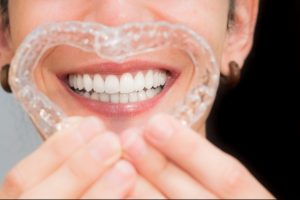 Dental concerns such as broken or chipped teeth, periodontal disease, and more are only a few of the many problems that may arise at one point or another throughout life. The common denominator that leads to these issues typically involves some combination of harmful bacteria and sub-par preventive care, but can usually be treated with a restorative dental procedure. But what can be done about natural concerns such as misalignment? In today’s blog, your Leawood, KS dentist will take a look at the importance of correcting misalignment and how it can be accomplished discretely with Invisalign® aligners.
Dental concerns such as broken or chipped teeth, periodontal disease, and more are only a few of the many problems that may arise at one point or another throughout life. The common denominator that leads to these issues typically involves some combination of harmful bacteria and sub-par preventive care, but can usually be treated with a restorative dental procedure. But what can be done about natural concerns such as misalignment? In today’s blog, your Leawood, KS dentist will take a look at the importance of correcting misalignment and how it can be accomplished discretely with Invisalign® aligners.






